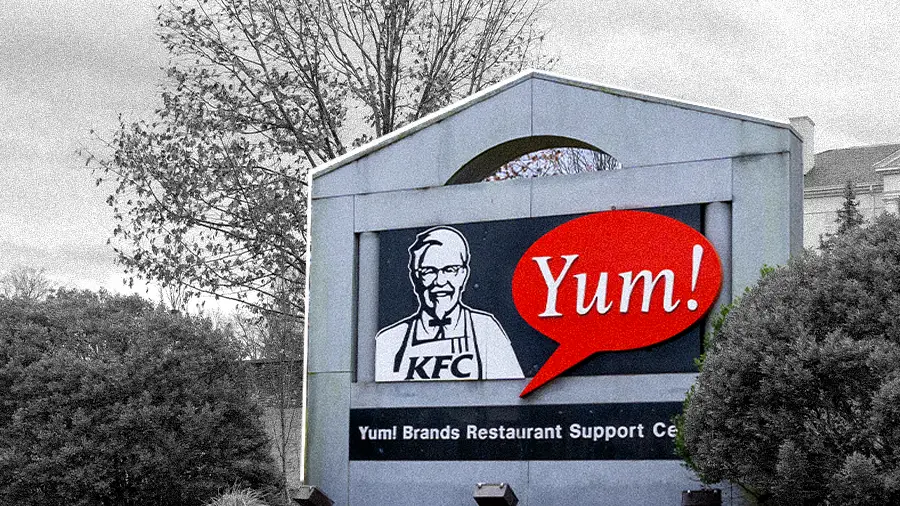
Yum! Brands recently announced its development of a proprietary AI-driven restaurant technology platform, "Byte by Yum!", to solve franchisee problems and reduce reliance on third-party tech vendors.
Cameron Davies, Yum! Brands' Chief Data Officer, explained how the AI-powered system reduced food stock-outs by 85% and cut carrying costs by 10%, saving restaurant managers up to four hours per week.
Leveraging a unified data platform of 180 million customer profiles, the company is already driving significant sales growth by replacing generic campaigns with hyper-personalized marketing.
At Yum! Brands, the most significant competitive advantage isn't the latest AI tool. It's the company's recent move to become a tech pioneer in its own right. With the singular goal of solving real problems for franchisees, Yum! developed a proprietary system to undercut third-party vendors' market share. Driven by the conviction that its technology is built by restaurateurs, for restaurateurs, Yum! is creating a defensible moat that separates it from most off-the-shelf solutions.
Among the leaders guiding this transformation is Cameron Davies, Yum! Brands' Chief Data Officer. His playbook for leveraging data at massive scale was created over two decades inside some of the world's most complex consumer companies. Prior to joining Yum!, Davies served as SVP of Corporate Decision Sciences at NBCUniversal, leading content personalization and monetization efforts. Before that, he spent nearly 17 years at The Walt Disney Company, where he established and ran the corporate Center of Excellence for Management Science and led global Yield Management for its resorts. Today, Davies brings the forecasting and optimization skills he honed in those high-stakes roles to the restaurant industry.
"The best advice I give to everybody, and what we've tried to do at Yum!, is really start with the business problems first, not the technology. Try to understand what the opportunities are, what the payback is, how hard they are to achieve, and then apply the right technology and Occam's Razor: the minimally complex thing you can do to drive that value," Davies said.
No data, no AI: Yum!'s antidote is a guiding principle Davies learned fifteen years ago from his friend Manoj Saxena, the first GM of IBM Watson. Start with the business problem and tackle two of the biggest obstacles, he explained. "The number one challenge is always the data. No data, no AI. The second thing is change management, which is all about people. If you start with the business problem first, you start to minimize the change management challenge."
The flywheel effect: It's all part of a single, unified system Davies called the "AI Flywheel." Powered by the company's proprietary "Byte by Yum!" technology platform, it creates a sort of "virtuous cycle," he explained. "The more services you own, the more data you get. The more data you get, the better your AI. The better your AI, the better the experience on those services. The better the service experiences, the more people use the services, and it starts all over again."

"The best advice I give to everybody, and what we've tried to do at Yum!, is really start with the business problems first, not the technology. Try to understand what the opportunities are, what the payback is, how hard they are to achieve, and then apply the right technology and Occam's Razor: the minimally complex thing you can do to drive that value."
Today, the Yum! flywheel strategy is a key driver of an impressive digital performance, contributing to a 57% digital sales mix and a 22% digital increase for KFC Global. Meanwhile, when Pizza Hut Mexico adopted the Byte platform, it saw nearly 40% growth in a single quarter. By becoming a restaurant-native tech company, Yum! is playing a long game, Davies continued.
The strategy's value is especially clear wherever it solves a simple, ground-level problem for real employees. For example, Davies recalled how, before the new system, a Restaurant General Manager (RGM) low on inventory "would literally call the RGM down the street" to borrow product—a perfect picture of the inefficiency it was built to solve.
Proof in the produce: The AI-driven forecasting system changed everything, Davies said. "The results were immediate. The system reduced food stock-outs by 85 percent and cut our carrying costs by 10 percent. But the most telling statistic was this: when managers ignored the AI's recommendation and placed their own orders, their accuracy dropped by 20 points. On top of that, it freed up two to four hours of their time each week, which they could then put back into managing their teams and creating a better guest experience."
Taco Tuesday debunked: But saving money on operations is only half the story, Davies continued. The other half is improving the customer experience through a powerful marketing engine. Powering that effort is Red360, Yum!'s unified data platform, which holds over 140 million customer profiles. "Taco Bell had done a lot of test-and-control, and they had decided Tuesdays were the best days to send out these emails. But when you run them through these new algorithms, you find that for certain people, the best day is Sunday morning. For certain people, the best day is Thursday afternoon."
Ultimately, the key is to make recommendations helpful and not intrusive, Davies continued. "I don't have to say in the email that I'm giving you an offer because I saw you buy a taco last time. That feels creepy. I can just give you what you're most likely going to want, since I already know you like spicy tacos. That's the art that blends with the science."
For other executives looking to replicate this success, Davies' final word of advice circled back to his core philosophy: invest in people and new ways of working, not just technology itself. "You need to have a core at the center, a Center of Excellence, that helps people. You have to show them how it works and provide the right training." To make the concept less intimidating, he compared the shift to AI with an evolution from his own career. "I came out of college, and my first finance job was with Lotus 1-2-3. Then I went to work for my first company, which had Excel. I had to change my skill set. It was still a spreadsheet, but how I used it was different."
.svg)





